
On Thursday, Oct. 2, 2025, the Mariënburg Chapel in Nijmegen filled up for the sixth edition of Over de Grens, Cultuur Academy's biannual talk show. This time the program focused on values, choices and finding your voice in a complex society. As an artist or organization, how do you deal with outside pressure, criticism or controversy? And where do you draw the line yourself?
Host Angela Verkuijlen engaged in a conversation with guests from the arts, communications and policy - creators, leaders and advisors who each reflected on the same question from their own practice: when do you speak out, and when not?

"Only when you allow yourself to be vulnerable can you really connect. For me, art is about being seen, and learning to see others."
Art with criticism
Composer and performer Baz Laarakkers talked about how he is looking more and more consciously at the money behind his commissions. "I want to know who I'm working for and what I'm making possible with it," he said. "Sometimes that means cutting yourself in the fingers - but that's part of it. Not everything that has money in it is something you want to be a part of." His words evoked a conversation about the autonomy of creators and the responsibility to remain critical precisely when things chafe.
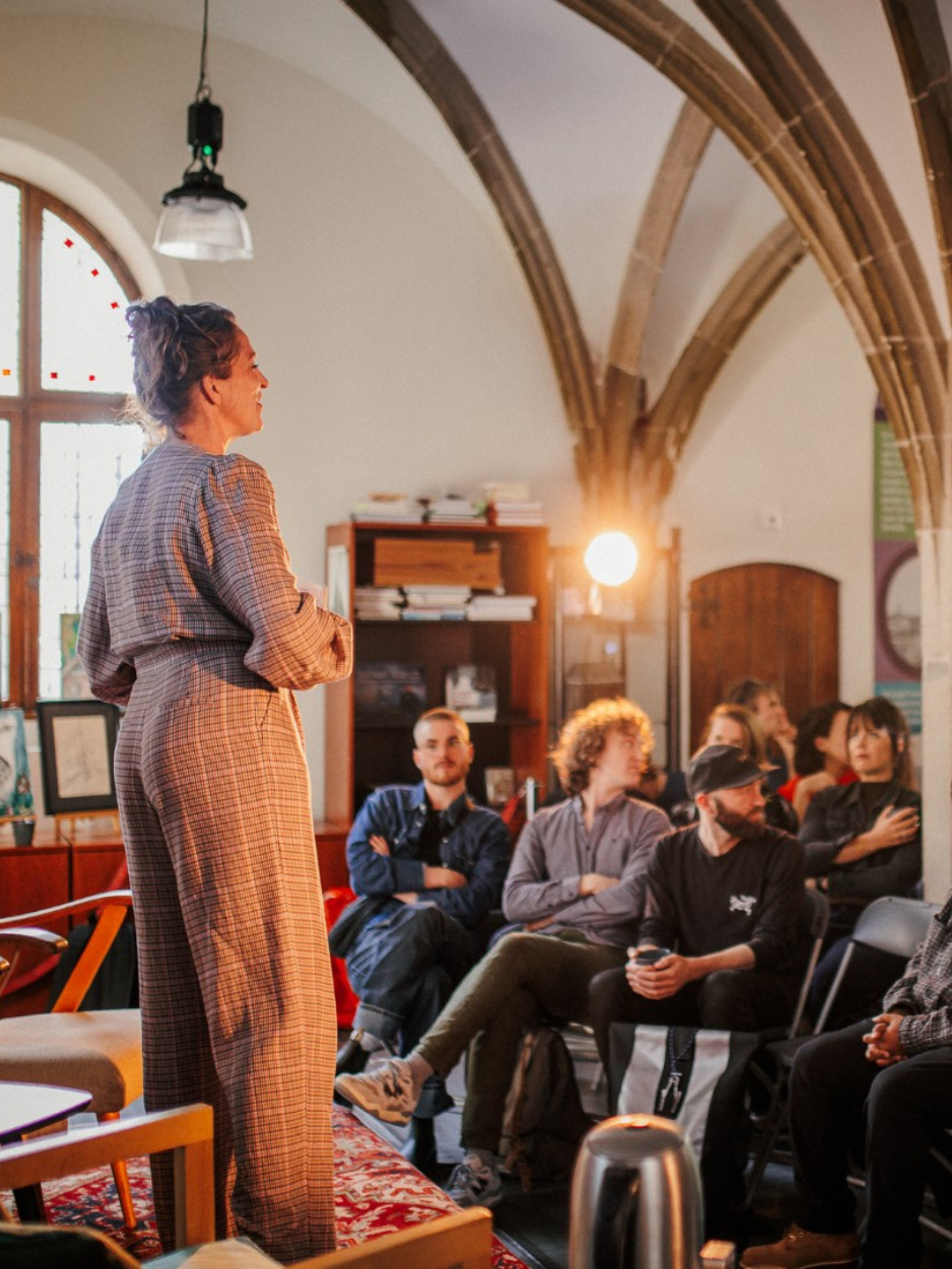

Koos Hornman, head of marketing at Doornroosje, shared how his team deals with social controversy surrounding artists and venues. When the music venue was recently in the news because of a controversial booking, Doornroosje chose to go ahead with the concert. "We stand for free expression," he told me. "Every artist deserves a stage, as long as it is safe for audience and staff. We examined the situation carefully, checked it legally and decided not to let fear or sensation lead us. If we all move along on the waves of the press, nothing is left of our autonomy."
Art with political overtones
Then Saskia Bak, director of Museum Arnhem, and Henriëtte de Hoog, crisis communications consultant, elaborated on the theme of resistance. Using the controversial exhibition Art in the Third Reich they discussed how art can acquire political significance - and how important it is as a museum not to run away from that. "With this exhibition, we wanted to show precisely how art can be hijacked by politics, and what that says about the times we live in today," Saskia said. Henriëtte complemented: "Resistance is not something you should avoid. If you understand where it comes from, you can explain what you stand for much better."
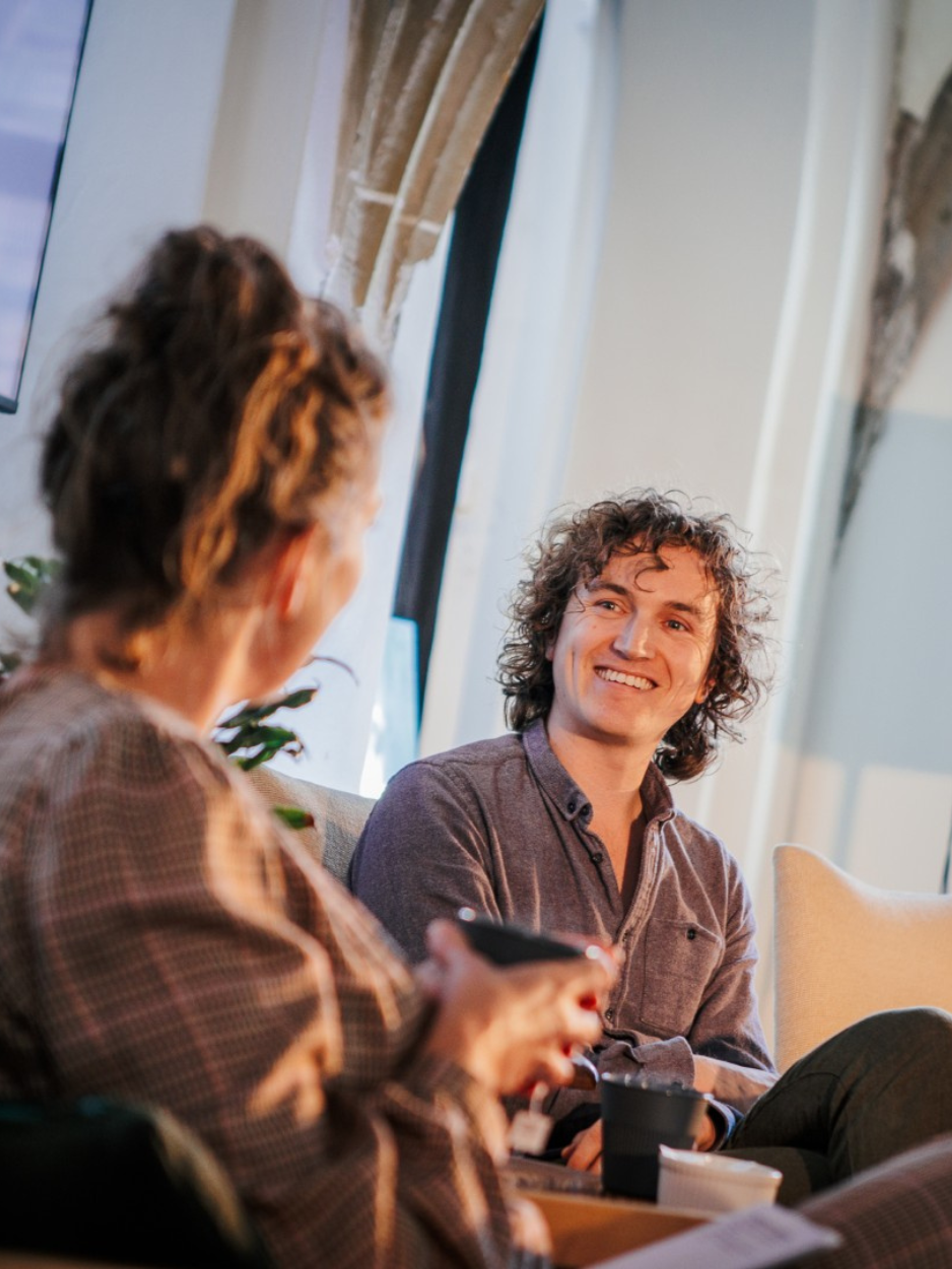

At the coffee machine, Thijs van Beusekom told us about Wereldlab Nijmegen's Luisterlunches - small-scale gatherings where Nijmegen residents share their stories about what is on their minds in the city. "We listen, without judging," he said. "Only then does the real conversation begin."

"Resistance is not something you should avoid. If you understand where it comes from, you can explain what you stand for much better."
Art as connection
Theater producer Eva Timmermans and performer Haruun Yussuf Sharif also showed how art can connect. Eva talked about her project Hier in Nijmegen, in which she distilled theater texts from conversations with newcomers to the city. "I learned to meet and now look differently at everyone I meet," she said.
Haruun talked about his work as a performer and maker, which focuses on encounter and empathy. "Only when you allow yourself to be vulnerable can you really connect," he said. "For me, art is about being seen - and learning to see others."

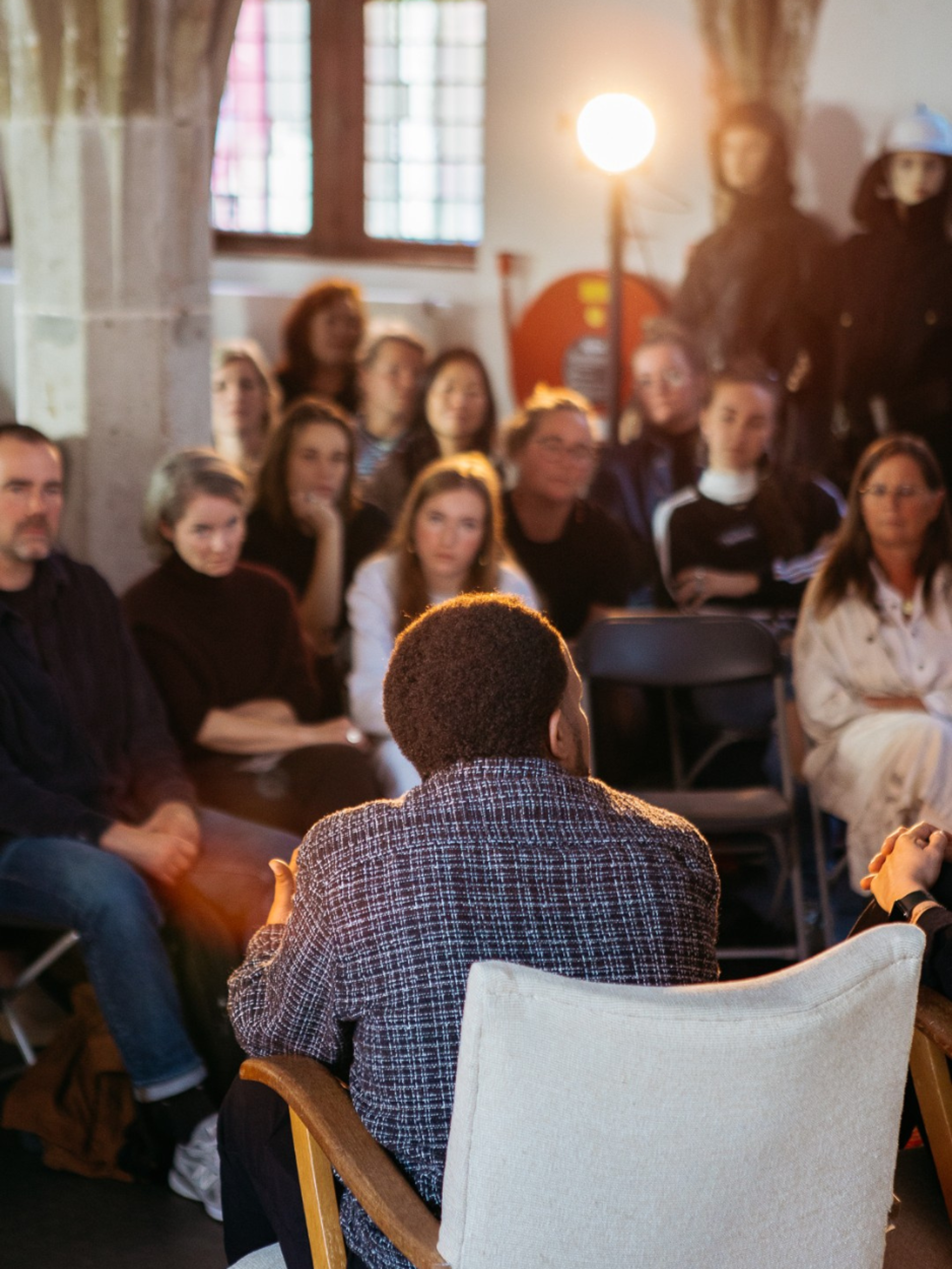
As always, the afternoon ended with the passing of the symbolic baton. Florien Rauws of Ruimtekoers had already made her choice: Café De Plak, a Nijmegen place that for decades has symbolized equality, respect and being able to be yourself. During the talk show, that choice was only confirmed. "I thought: yes, this ís the living room of the city," Florien said.
The evening ended with a pleasant drink, where there was plenty of talk about courage, vulnerability and the power of words. All in all, an edition that showed that taking a stand is not always easy, but it is necessary to make room for dialogue, nuance and connection. Because if you know your values, you also know where to draw the line - and when it can be crossed.
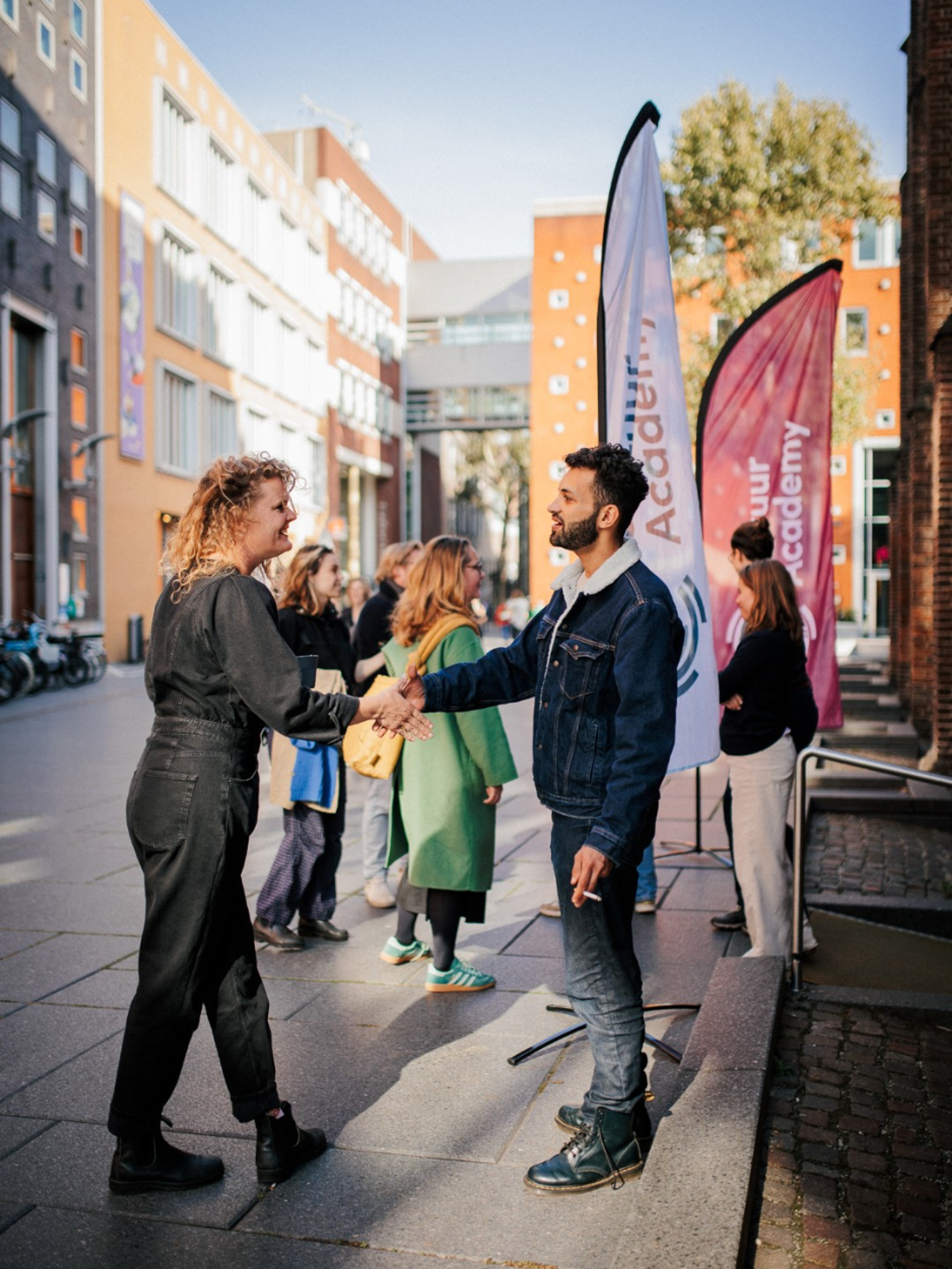
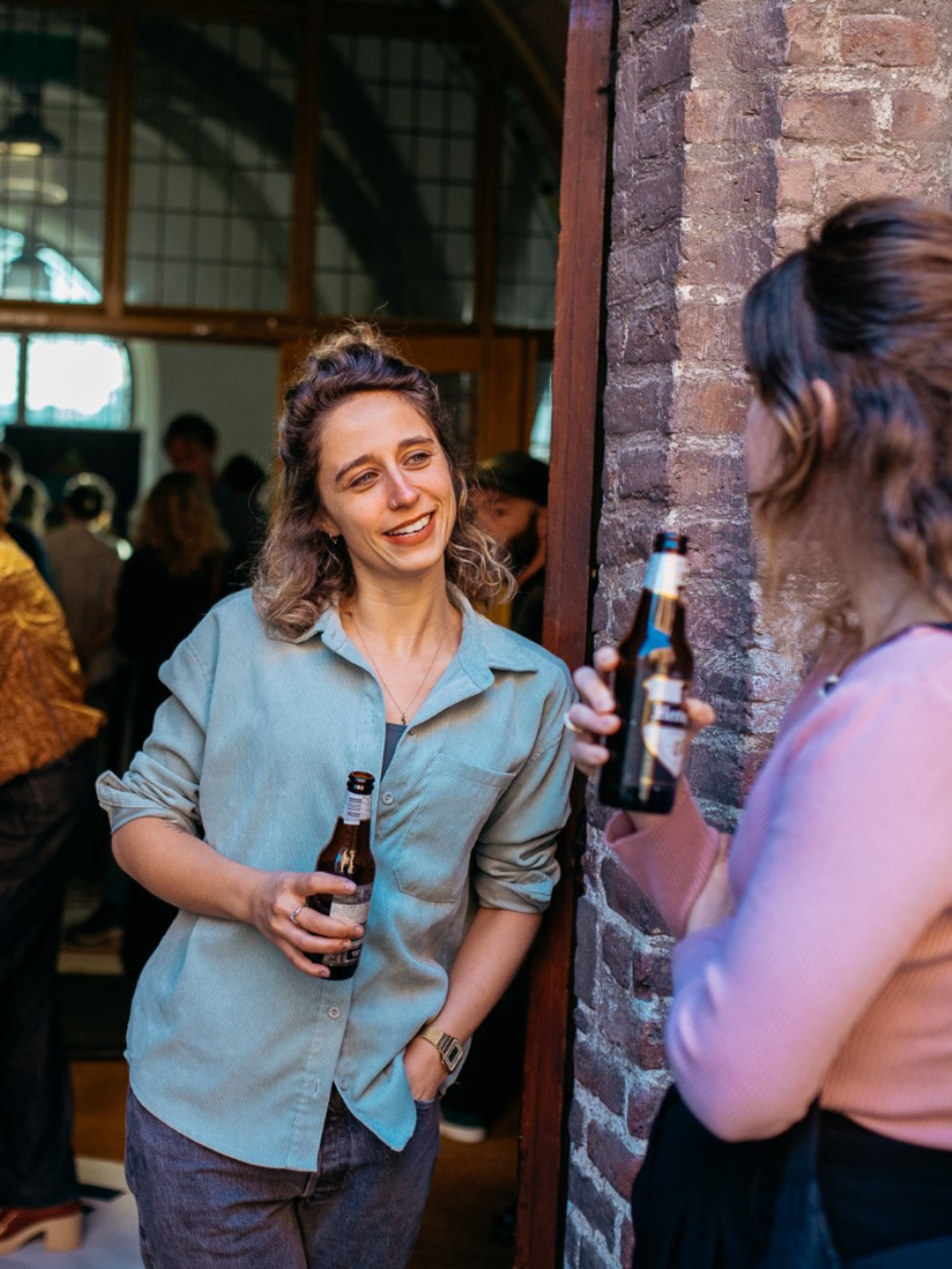
Want to be notified of the next Over the Border? Subscribe to our newsletter!
Photography: Joost Klapmuts
